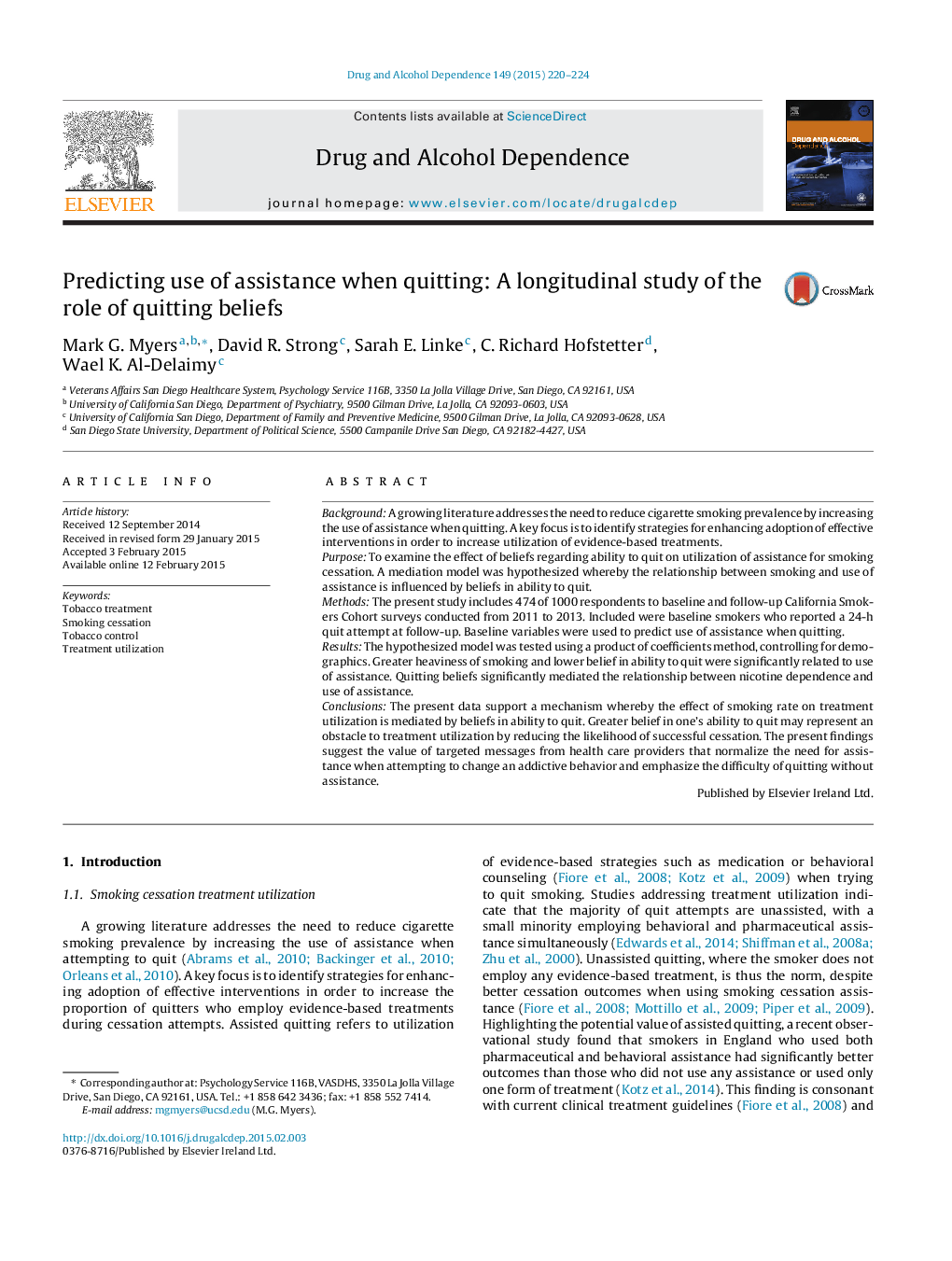| Article ID | Journal | Published Year | Pages | File Type |
|---|---|---|---|---|
| 7505266 | Drug and Alcohol Dependence | 2015 | 5 Pages |
Abstract
The present data support a mechanism whereby the effect of smoking rate on treatment utilization is mediated by beliefs in ability to quit. Greater belief in one's ability to quit may represent an obstacle to treatment utilization by reducing the likelihood of successful cessation. The present findings suggest the value of targeted messages from health care providers that normalize the need for assistance when attempting to change an addictive behavior and emphasize the difficulty of quitting without assistance.
Related Topics
Life Sciences
Neuroscience
Behavioral Neuroscience
Authors
Mark G. Myers, David R. Strong, Sarah E. Linke, C. Richard Hofstetter, Wael K. Al-Delaimy,
